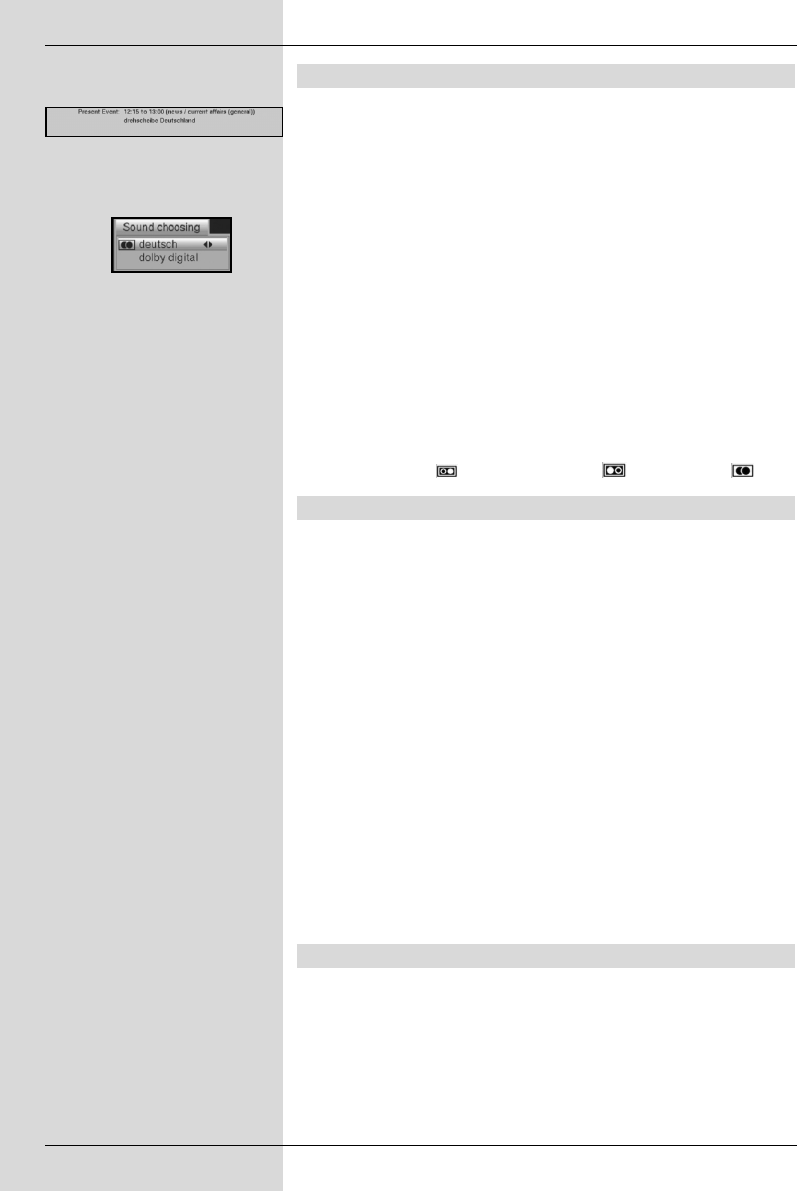
7.6 Selecting a different language (TV mode) resp.
station (Radio mode)
If a programme is broadcast in several languages, or with multi-
channel sound, or if several radio programmes are available on a
specific radio slot, this information will be displayed (Fig. 7-10) on
screen. You may then proceed as follows to select a different langua-
ge or a different sound channel:
> Press the key Option. A list will now be displayed (Fig. 7-11)
on screen, indicating the languages resp. radio programmes
currently available.
> Use the arrow keys up/down to mark the desired langua-
ge, resp. the desired radio programme, and confirm by pres-
sing OK.
You may now listen to the programme in the language selected. Your
digital receiver is also equipped to receive monaural programmes.
> Use the arrow keys left/right to choose between Mono
channel 1 ( ), Mono channel 2 ( ) and Stereo ( ).
7.6.1 Dolby Digital (AC3 mode)
Where a programme is broadcast with Dolby Digital sound, this will
be indicated by the Dolby logo in the information box when you
switch to the programme. If you have switched on the Dolby Digital
(AC3) function in accordance with Point 6.3.6, this programme will
then automatically be reproduced in this format.
If you have not enabled the Dolby Digital (AC3) function, you can
switch to AC3 mode manually as follows:
> Press the Option key. Where available, a list of the currently
available languages and Dolby Digital (AC 3) wawill be
displayed on screen.
> Use the arrow keys up/down to mark the line Dolby
Digital.
> Confirm by pressing OK.
You can now enjoy Dolby Digital sound for this programme. If you
would like your receiver to reproduce Dolby Digitalbroadcasts auto-
matically, proceed to make the settings as described in Point 6.3.6 for
automatic AC3 reproduction.
7.7 Return to last programme selected
> Pressing the Back key on the remote control will take you
back to the last programme previously selected.
> Press the key again to return to the programme previously
selected.
26
(Fig. 7-11)
(Fig. 7-10)


















